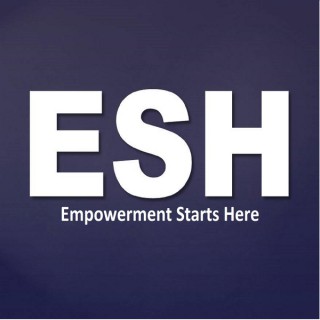Podcasts about empowerment starts here
- 4PODCASTS
- 17EPISODES
- 56mAVG DURATION
- ?INFREQUENT EPISODES
- Oct 14, 2020LATEST
POPULARITY
Best podcasts about empowerment starts here
Latest podcast episodes about empowerment starts here
In this episode, Empowerment Starts Here with Senator Lena Taylor from Wisconsin. The Senator joins this BLM series as a public servant trying to disrupt social margins for her constituents while personally being in those margins. She talks about life, liberty and the pursuit of happiness by going right to the U.S. Constitution and then directly connecting it to George Floyd. She also talks about the “goodness” of political progressives until it comes to black folks. Finally, she talks about black lives matter being a movement not just about black lives but about social unrest, social injustice, social inequities. For more, visit our website.
Learn more about my Teaching Through a Culturally Diverse Lens Course About Angela Dye, Ph.D. Dr. Angela Dye is the developer of the Empowerment Starts Here brand. With it, she brings together the social sciences and education to promote social change and resistance for disadvantaged communities. She is a published author, a creator of K12 curriculum for higher order thinking and social action, a theorist and activist for student empowerment and shared-power leadership, and is a former charter school designer and operator. Currently she is the Host and Executive Producer of the Empowerment Starts Here podcast where she talks about power, social change and disrupting margins. She serves as an adjunct professor teaching theories on human development, learning and leadership to graduate students as well as teaching the sociology of health, nonprofits and gender to undergraduate students. Finally, she is a public speaker and serves as a life coach for those living in the margins. Dr. Dye holds a bachelor's degree in social science and secondary education, a master's degree in school and instructional leadership, and a PhD in education where she studied power as related to low-income African American learners. Show Highlights The concept of Racism A discussion on the meaning of Racism “Invisible Giants” Microaggressions A discussion on privilege Disrupting Racism in schools Connect with Angela Twitter: @ejuc8or Email: info@pbsdevelopment.com Website: https://empowermentstartshere.net/ Podcast: Empowerment Starts Here Additional Resources Empowerment Starts Here: Seven Principles to Empowering Urban Youth Connect with me on Twitter @sheldoneakins www.sheldoneakins.com
Anthony talks with Dr. Angela Dye, social scientist and host of the Podcast, “Empowerment Starts Here” about personality types and friendship. Our co-hosts reflect on their own personality types and we hear from Better With You staff, Andy and Sarah Bisaha as Andy takes the test for the first time himself!
In this conversation, you will learn about movement as vital to building brain cells, moving information from short-term into long-term memory, and positioning students as co-constructors of knowledge—not just mindless receivers of someone else’s knowledge. In the close out of the episode, the host talks critically about no-excuse schools that regulate students bodies as artificial forms of achievement. Such regulations have a structural impact on marginalized communities. For more information about the Case of Learning ad Moving, please visit the show notes at Empowerment Starts Here.
Recorded on November 13, 2017. Dr. Angela Dye (@ejuc8or) is the developer of the Empowerment Starts Here brand. There, she brings together the social sciences and education to promote social change and resistance for disadvantaged communities. Through her brand, she is a published author, creator of an emerging theory for teaching and learning, developer of K12 curriculum for higher order thinking and social action, and is a former charter school designer and operator. Dr. Dye holds a bachelor's degree in social science and education, a master's degree in school and instructional leadership, and a PhD in education where she studied power as related to low-income African American learners. She currently serves as an adjunct professor teaching graduate students about theories on human development, learning, and leadership. She is also a public speaker and serves as a life coach for those living in the margins. Finally, she is the Host and Executive Producer of the Empowerment Starts Here podcast where she talks weekly about power, social change and disrupting the margins. Music: Ron Madison (@madison_ron) Producer: Sarah Thomas (@sarahdateechur) Subscribe: http://podcasts.edumatch.org/edumatchpodcast Join the movement: http://www.edumatch.org --- Send in a voice message: https://anchor.fm/edumatch-tweet-talk/message Support this podcast: https://anchor.fm/edumatch-tweet-talk/support
This week Empowerment Starts Here with informant Kaitlin Popielarz in the Case of Therapy and Well Being. In it she discusses working with a therapist as a form of self care, the stigma that can sometimes surround this form of healing and how her family dynamics helped make going to therapy possible. Kaitlin also delves into the racial privilege that allowed her to seek out and get counseling.
Episode 12: The Case of the Social Change Organization
In this episode (Ep12), Empowerment Starts Here with Angela Dye (the host). With the Case of the Social Change Organization, Angela offers a 4-part construct for organizations promoting social change. She reasons that organizations committed to social change should have a clear and active aim, should be treated as a learning organization, should consist of design essentials and should have alignment. This episode is helpful for anyone leading a formal organization (non-profit, school, church) or an informal organization (classroom, family, and team). Angela ends this episode with an assignment for the listener to move forward as an organizational leader.
In this episode (Ep10), Empowerment Starts Here with Dr. Paul Thomas in the Case of Critical Literacy. As you listen, you will hear Dr. Thomas interrogate the difference between intention and impact as relating to messages we speak. You will also hear him question the joys that come from traditional rhetoric and the pain that we experience when that rhetoric is unpacked. Finally you will hear him challenge the racial bias he’s associated with phrases like grit and growth mindset and make us think about education and reform in a new light.
In this episode, Empowerment Starts Here with Peter Anderson. In it, Peter talks about why he went gradeless; what he learned about the schooling industry once grades were removed from his practice; and how his gradelessness revealed his whiteness and his protected place of power in an inequitable world. At the close of this episode, I talk about some concerns I have with the movement to remove grades from the learning process. The best way this can be summarized has actually already been framed by Marian Dingle (as referenced in The Gradeless Garden) when she said, “Grading less seems to me to be empty not because of the ‘less’ but because of the elephant that persists in remaining nameless.”
In this episode, Empowerment Starts Here with Kathleen Devine where she reveals individual strengths as a power source to be fully whole. In this conversation, Kathleen also connects being whole (by way of strengths) as being connected to a higher being and makes us think about the notion that man and woman were made in God’s image. In this conversation, we questions the power barriers that prevent humans from both knowing and walking in their gifts and spend time revealing the intrinsic motivation and the achievement that are possible when we turn our attention away from deficit based thinking to strengths based thinking.
In this episode, Empowerment Starts Here with Nikhil Goyal. Nikhil talks about the impetus to school reform. It all started as a high school student and knowing that his needs as a learner were not being addressed. Nikhil started researching alternative models for teaching and learning and learned about the progressive movement (such as constructivism) that centers students in the learning process and allows learners to make meaning of their worlds. Power in this episode is connected to individual learners and the discussion questions the role of power in the learning process.
In this episode, Empowerment Starts Here with Roger Harris (Artist/Performer) and Joshua Howard (Musician/Producer). Not only are Roger and Joshua both pursuing their artistry, they are both former students of Angela Dye (the host). They attended her school when they were in 6th grade (Joshua) and 7th grade (Roger) and are currently in their early to mid-20s. These young men talk about their current life pursuits, the context of their passions and the power structures that make their passion and pursuits possible and difficult. Note: Although this is episode 5, this is our very first attempt at recording. Please bear with us on the sound. The content is worth sticking around for.
In the episode, Empowerment Starts Here with the Host (she’s flying solo). In it, she speaks about the practice of critical self-reflecting. She talks through foundational conditions required for self-reflecting: hunting for the location of power within the self; communicating with others to gain a deeper understanding of self and power; and being active and passive (reflective) in the work of social change so as to get closer to the espoused self (the idealized self). Not only does she provide the foundation for critical self-reflection, she provides examples from when she was an organizational leader responsible for promoting a collective practice for critical self-reflection.
Episode 01: The Case of Being Black, Female and Human
In this episode, Empowerment Starts Here with Angela Walker. In it, she talks about the vocation to be human (as defined by Paulo Freire in the Pedagogy of the Oppressed [1970]). In the conversation, Angela Walker (the Informant) and Angela Dye (the Host) talk about agency, about giftedness, about the body as all experiences of being. The greatest value of this conversation is a consideration of what it means to be dehumanized (by way of various forms of oppression) as well as the rights and responsibilities to be fully human.
In the episode, Empowerment Starts Here with Chris Thinnes. In it, he speaks transparently about his shift in allyship... going from working with people (specifically students) of color to talking within his own family and other whites within his personal and professional networks. Chris also talks about experiencing rage that is designated to those who are considered race traitors and finally, he talks about democracy as a performance when outcomes and decisions are determined before taking a seat at the decision making table.
In the episode, Empowerment Starts Here with Rev. Gwen Thomas. In it, she speaks passionately about the value of not only welcoming people in their differences but celebrating them in their differences. She gives a thoughtful run down on the Bible passages that are typically used to deny LGBT persons their full humanity and then advocates the idea of a radical Jesus that comes to give it back to them. Finally, she talks (along with the host) about the paradox of the black church that both comforts and harms those that have been racially oppressed.
Episode 00: A Podcast About Power, Social Change and Disrupting the Margins (Introduction)
This episode provides an overview of the Empowerment Starts Here podcast as a new project. In it, the host describes the relevance of power for social change. She describes six treatments of power and offers a few disclaimers about what the show is and what it is not. Finally, she sends out a call to action to describe how listeners can join the host and the producers to help make this show a success.







